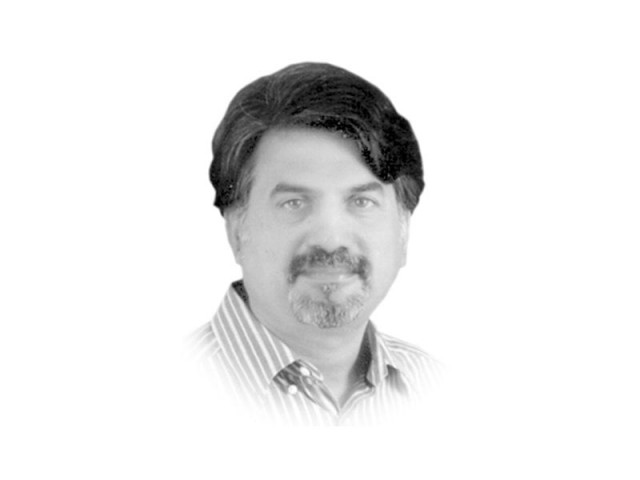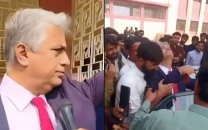How fruitful will the US-Arab Islamic summit be?
The best thing the summit is doing is giving hope to a scared world

The writer is a retired lieutenant colonel of the Pakistan Army and a PhD in civil-military relations
Besides demonstrating that ‘the US and Arab-Muslim countries can form a deep and enduring partnership’, what else can this unique and first-of-its-kind summit achieve? Will the US be willing to carry out political and military investments in the Middle East? Having right-sized its footprint there by extricating from Iraq and not participating in Syria (boots-on-ground), would it again want to reset power politics of the region that is already dominated by proxies and interventions?
According to a report published in the Business Insider, the US contributes over 200,000 troops to 177 countries with major deployment in the Middle East (25,000), which includes Iraq and Kuwait (6,000 each), Bahrain (5,000), Qatar (3,000), Turkey and Jordan (1,800 each) and the UAE (1,000). With an increase of $54 billion in the 2018 defence budget, it is difficult to understand how the US, in the coming days and years, will contribute towards peacekeeping in the world? Not being able to resolve the old wars, how will it prevent any new ones from breaking out? With its contribution to UN peacekeeping reduced by 28 per cent, would the risk of famine and war, in various parts of the world, not maximise? On the one hand, the Trump administration lives up to its electioneering slogan of ‘America first’ by pulling back from the world, resulting in cuts in UN contributions and ceasing climate change funds, and on the other hand, demonstrates reaching out to it by measures such as the US-Arab Islamic summit. A dichotomy no doubt.

On the face of it, the best thing that this summit is doing is giving hope to a scared world — Muslim by most standards. It provides an opportunity to the leadership of the Muslim world to together, with the US, repair, rebuild, reinforce and reconstruct the battered and bruised image of Muslims and Islam. The leadership would not have to look far — Yemen will provide them a classic example of what is going wrong in the Middle East and how religious polarisation, state collapse and dearth of able leadership, which is not willing to see beyond its narrow selfish interests, is creating an environment where violence and jihadism grows and the common people suffer.
The Muslim leadership is well aware of the primary drivers of jihadism in the region. They even know what it would take to repair the existing failed regional order, which is realignment and engagement with Iran. But this is not being given much importance.
For construction of a stable regional balance of power in the Middle East, the summit will have to find room for two more seats — Iran and Israel. Unless this happens, the root causes of the political problems and crisis will remain unresolved, and there would be least likelihood of reduction in violence in the region. Iran’s nuclear programme, Arab-Israel conflict, threat from ISIS, ongoing civil wars in Syria and Yemen and many proxies being fought including the one in post-war Libya, are all drivers of instability in the region. Iran and Israel are important stakeholders and without their participation no summit can claim to have even come near to changing the existing order for good.
As far as the US is concerned, it has remained deeply implicated in a failed Middle East order in which it supported autocrat governments. It was not until millions of Arabs took to the streets in 2011 that the US stopped influencing the political environment. Since then what it has on its plate is a host of political wars kicked up by new born nationalism, fought on religious, sectarian and ideological lines.
The US strategy of disengagement in the Middle East maximised risks and shown that as its interest wanes, Russia takes over to reassert its image of a global power broker. Thomas Hobbes wrote in his book, the Leviathan: “convents without the swords are but words.” This sword has been created in the form of 56 Muslim countries (Nato-like) military alliance. It seems that to bring order in the Middle East, this alliance will provide the military option which may well be used as a means of solving the problems. With majority of Muslim countries getting together under one banner, led and supported by the US, Saudi Arabia may just well be able to lead and initiate an era of transformation and reform in the region. An era in which the Muslim world may unite to utilise a combination of ‘pressure and engagement’, ‘containment and deterrence’ or ‘military action’ to mitigate and resolve many issues that mar the political climate in the Middle East.
All in all, the US-Arab Islamic summit may be remembered for a unique get-together of the Islamic world with the US on one platform. But for many, it will be remembered for the inability of the Muslim world to invite and accommodate Iran on that platform.
Published in The Express Tribune, May 20th, 2017.
Like Opinion & Editorial on Facebook, follow @ETOpEd on Twitter to receive all updates on all our daily pieces.



















COMMENTS
Comments are moderated and generally will be posted if they are on-topic and not abusive.
For more information, please see our Comments FAQ